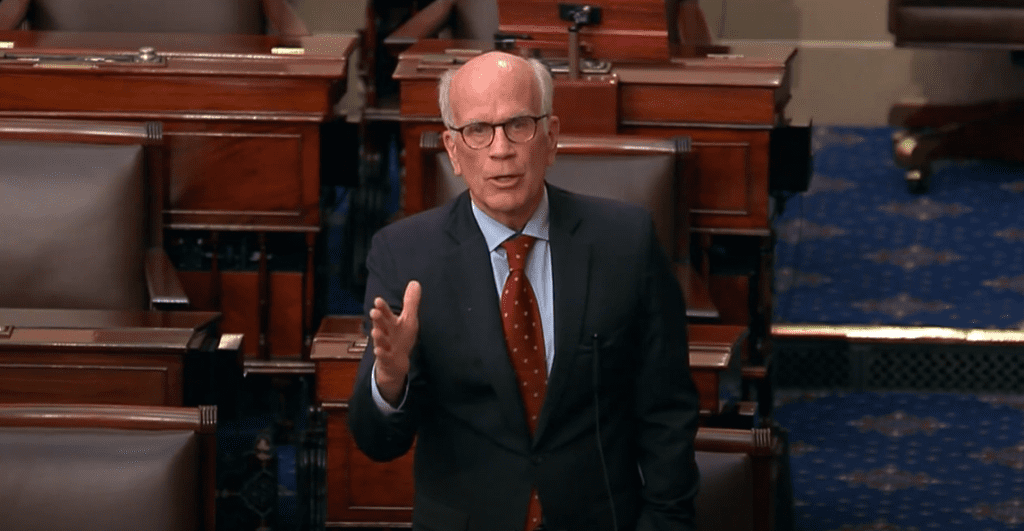WASHINGTON, D.C. – Wednesday night, Senate Republicans blocked Senate Judiciary Committee Democrats’ attempt to pass by unanimous consent the Supreme Court Ethics, Recusal, and Transparency (SCERT) Act, legislation that the Senate Judiciary Committee advanced last July. The request, made by Chair of the Senate Judiciary Committee Dick Durbin (D-Ill.), along with members of the Judiciary Committee, including Sen. Peter Welch (D-Vt.), comes amid ethical lapses by Justices and an unenforceable code of conduct.
“This ethics legislation is unfortunately necessary because the Supreme Court will not do what it has the responsibility to do. The Chief Justice of the United States Supreme Court will not face down colleagues on that Court who are just disregarding normal rules of decency. All of us should be doing everything we can to restore confidence in the Judiciary. This is step one,” said Sen. Welch.
Watch Sen. Welch’s full remarks below:

The Supreme Court Ethics, Recusal, and Transparency (SCERT) Act would:
Create Code of Conduct and Develop a Process for Enforcement
- Require the Supreme Court to adopt a code of conduct within 180 days;
- Require the Supreme Court to publish its code of conduct and any other rules or procedures related to ethics, financial disclosure, and judicial misconduct;
- Require the Supreme Court to create a transparent process for the public to submit ethics complaints against the justices, and for a random panel of chief judges from the lower courts to investigate and make recommendations based on those complaints.
Improve Hospitality and Financial Disclosures
- Require the Supreme Court to adopt rules requiring disclosure rules for gifts, travel, and income received by justices and law clerks that are at least as rigorous as the House and Senate disclosure rules;
- Require greater disclosure of amicus curiae funding;
- Require parties and amici curiae before the Supreme Court to disclose any recent gifts, travel, or reimbursements they’ve given to a justice;
- Require parties and amici curiae before the Supreme Court to disclose any lobbying or money they spent promoting a justice’s confirmation to the Court.
Strengthen Recusal Requirements
- Create new recusal requirements governing gifts, income, or reimbursements given to judges;
- Create new recusal requirements governing a party’s lobbying or spending money to campaign for a judge’s confirmation;
- Ensure that requests for a judge to recuse are reviewed by a panel of randomly selected, impartial judges, or by the rest of the justices at the Supreme Court;
- Require written notification and explanations of recusal decisions;
- Require the judiciary to develop rules explaining when a judge’s connection to an amicus curiae brief might require recusal; and
- Require the Federal Judicial Center to study and report to Congress every two years on the extent to which the judiciary is complying with recusal requirements.
Senator Welch has a long history of expressing concerns about reports relating to potential ethics violations by Justices of the Supreme Court, including joining 45 of his then-House colleagues in an October 2011 letter to the House Judiciary Committee urging the investigation of outstanding ethical questions surrounding the court.
###
